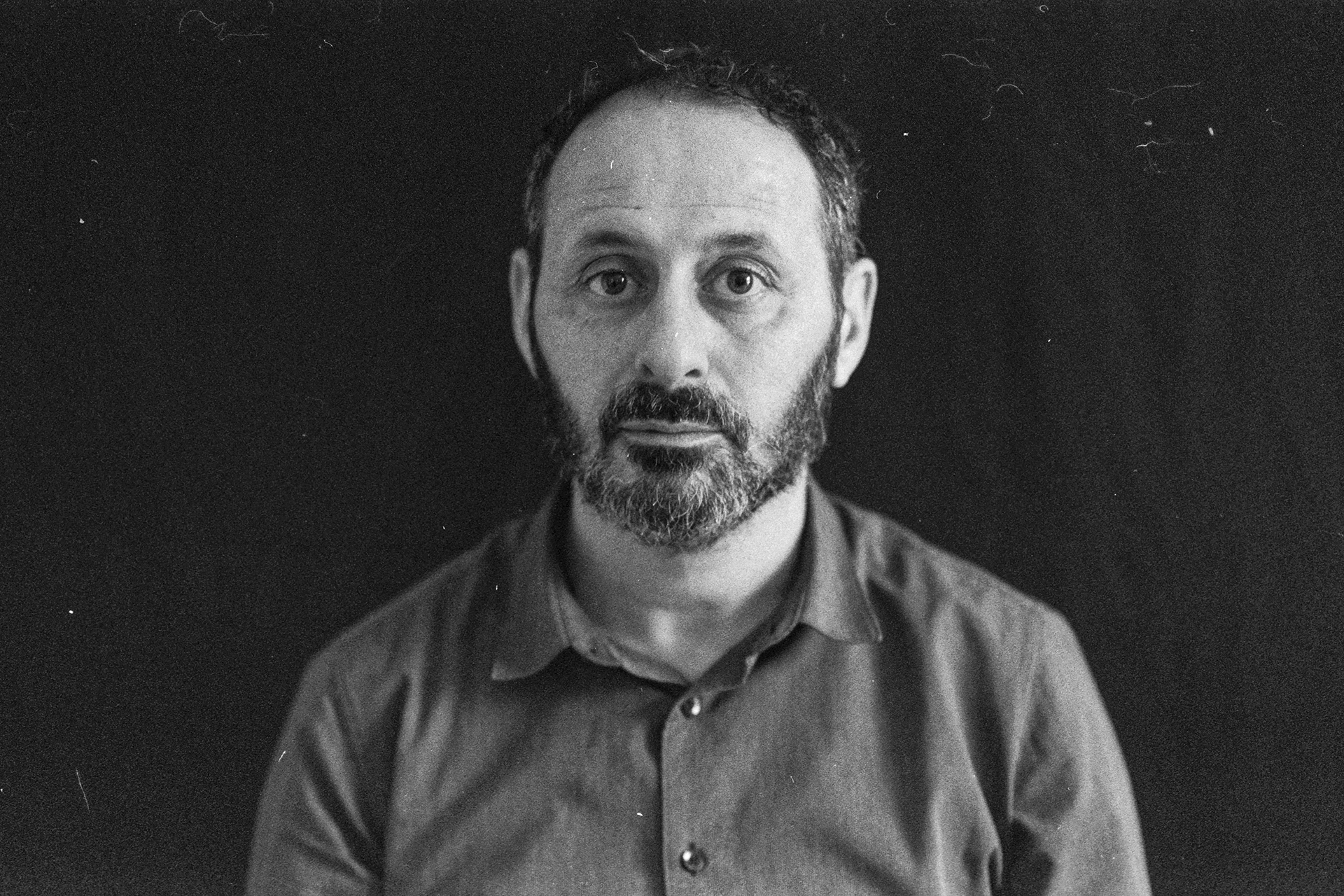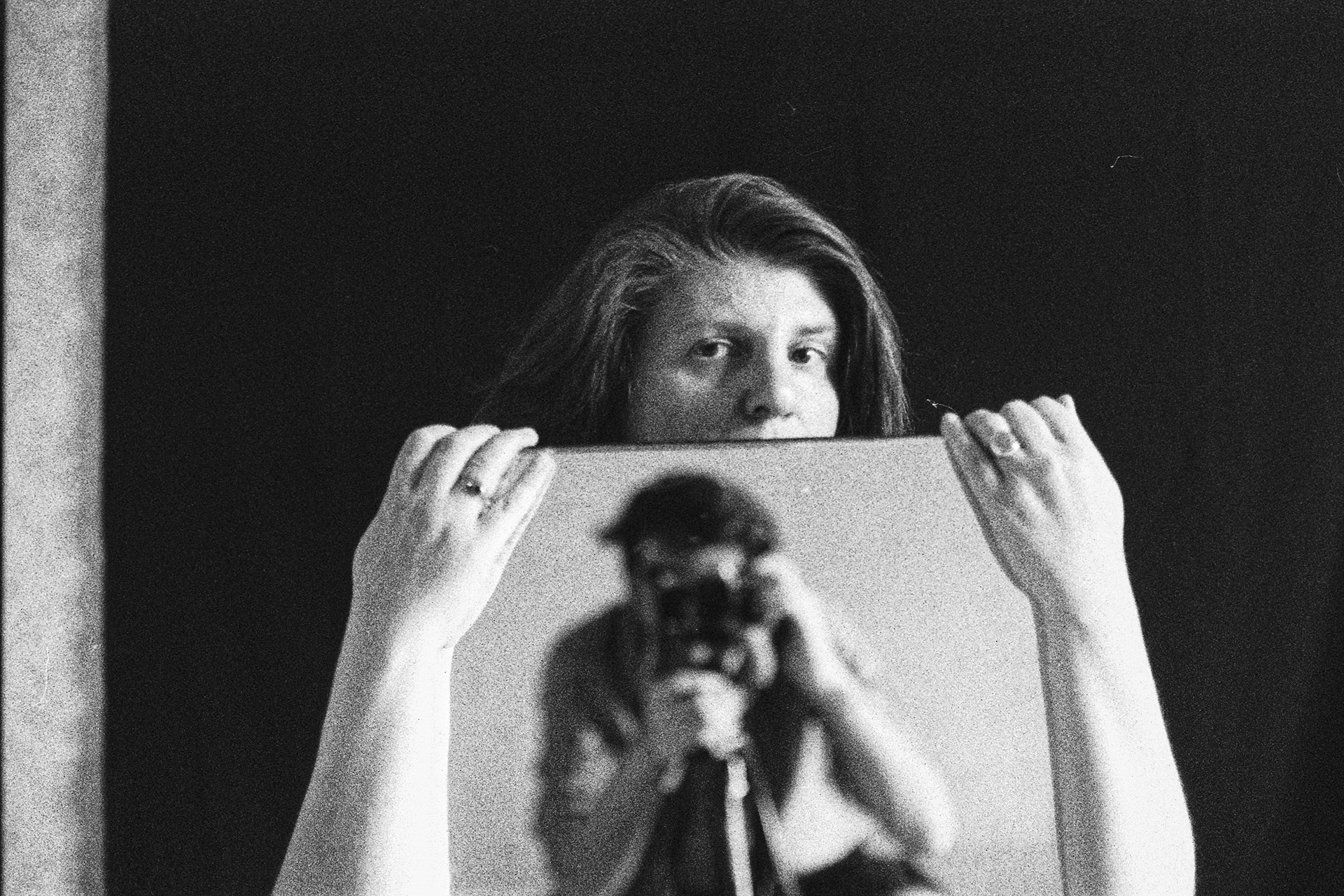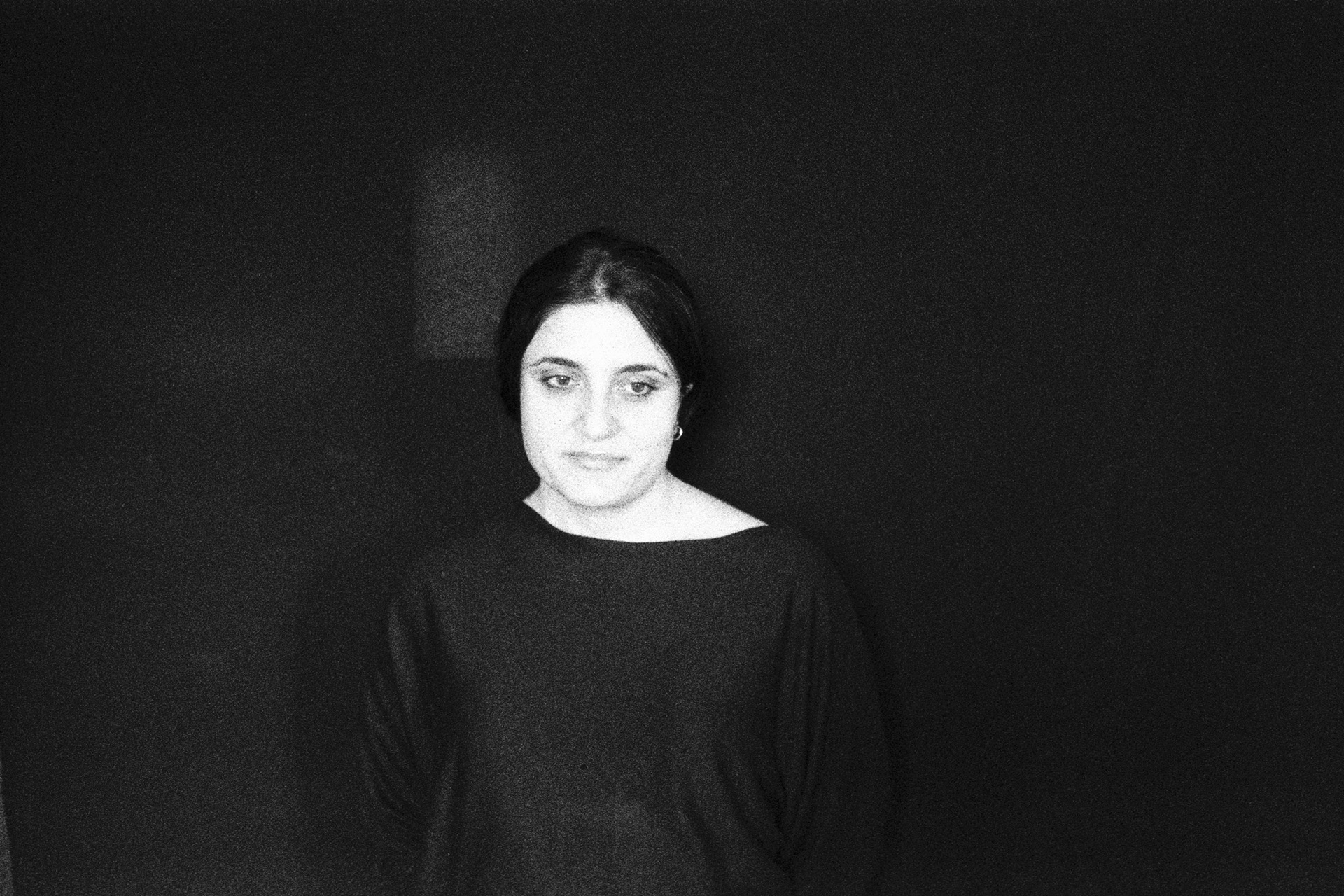The war started when I saw Miko off.
Before that, I had no fear. It was then, when I felt scared, because I saw Miko, then talked to you, Nazik and you told me to be attentive and take care of him… The war became personified…And when the doors of the bus shut and it drove off, I felt loneliness and danger for the first time.
Then, there was no news from Miko. It was the hardest period, as I felt guilty… I would wake up at night and think of him, because I was supposed to be responsible for him, and because I was the last person who saw him…
*(Miko (Mikayel) is Nazik Armenakyan’s son)
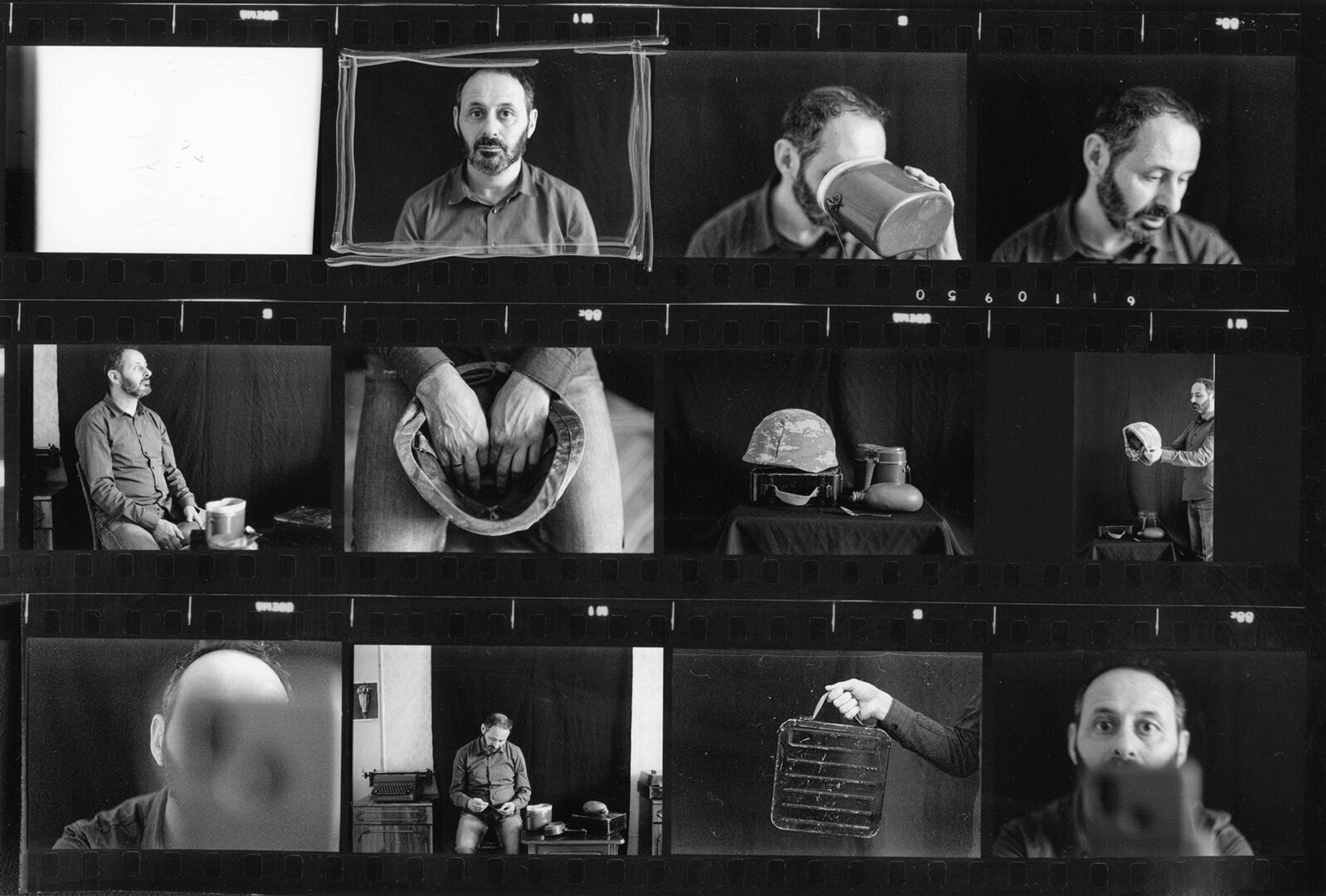
If I don’t take the camera, I must take arms. This question has been haunting me for a long time, since the first war, when I was 16-17 years old. I wanted to go to the front then, but my family told me it was not the time for it.
I have experienced army life; I have seen the war in my dreams… I was there during the April War, but it took place so fast; it was almost over when I got there. I did not realize what happened, did not experience anything, did not get the answer to my question – who am I in this war? There is certainly an intermediate image of the war created by the media, movies and literature; then there is the real war which can affect you, your close ones, your relatives…
I was in the rear in this war. Though I would go to trenches, I was not involved in active military actions. I was in spots which, however, were not at all active… I wanted to appear in places where I could find the answers to my questions, where I could understand something… I did not manage to document either, as there were many hurdles. There were not many places we were allowed to go…
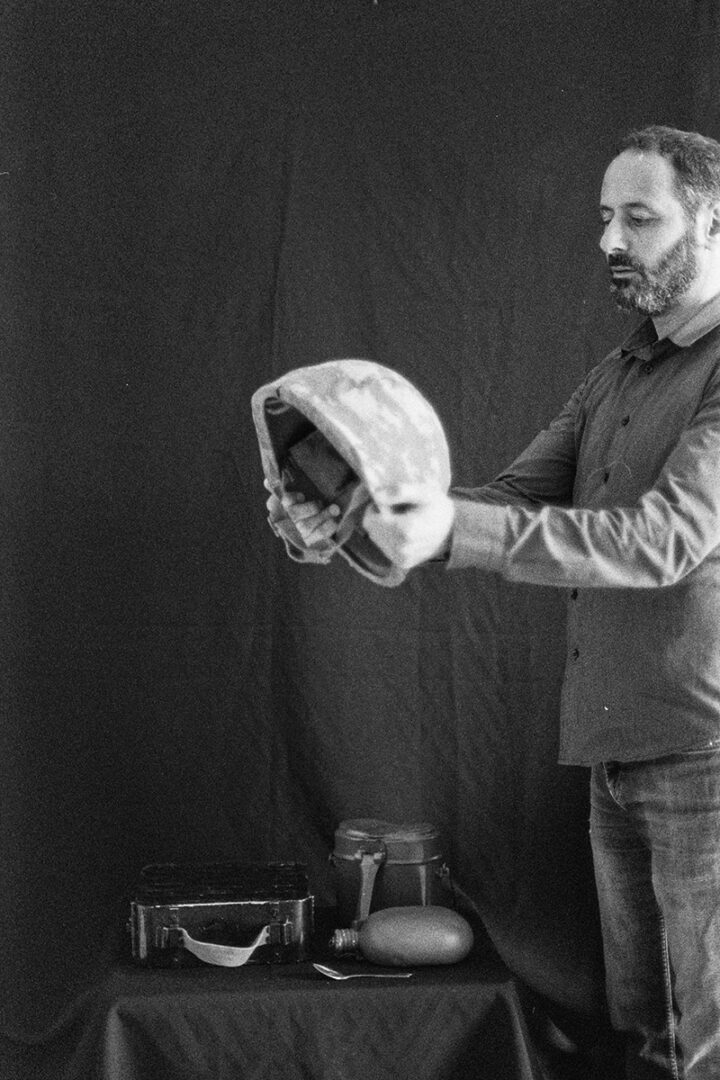
I wanted to see the warfare trench… I wished to capture the guys in action, I wanted to catch the reality as it was… I wanted us to be witnesses of the moment of their commitment and heroism for the sake of history… However, I did not manage to be present in the hot spots; there were obstacles impossible to overcome, mistrust of who I was and what I was doing… Perhaps it was normal in that situation.
During the war, I asked myself the same question…
… If we did not owe the air, how could we win? In between the “patriotic” information flow “We will win, we will win, we will win…”, my mind kept on asking how come we could win if the air was not in our control. What would be the price to win, if we did not owe the air? How come you win if you have no control of the air? Then I would comfort myself, assuring perhaps there was something I didn’t know; they were doing something I had no idea of… Anyways, I understood that you cannot win by defending only… Whereas, there was no counter attack.
In a certain sense, there were myths we lived with. Those myths were grounded, they did not come from the air… There was a time we had the most powerful and efficient army in the region. It was stated by international experts. Years have passed since then and resting on one’s laurels, boasting and ignoring problems, situations and relationships lead to this…
We were not the true lords of our land… This should not justify the opposite argument that Azerbaijan will be a “good lord”… But we did not take care of our land.
Even in my amateur opinion, I saw that we were not ready to camouflage military equipment (by using a few branches, we thought it would be invisible from above)… And this happens in a situation where you do not have control of the air. I have seen the air defense, and if it was visible to me, how could it not be seen from above? I wondered. It turned out we were not ready, the level of professionalism was too low.
The aftermath of the war has left a greater impact than its action.
Though there were also situations that had great effect during the war: for example the hospital, and guys lying unconscious. I took photos of them, but I will never publish those photos…
I took parts of the body of a guy, also his face. Being so close to that moment, when you realize that he was there for you, too. And now he is lying here unconscious and you are here, taking photos of him… Well, yes, you realize you took the photo, but only for you.
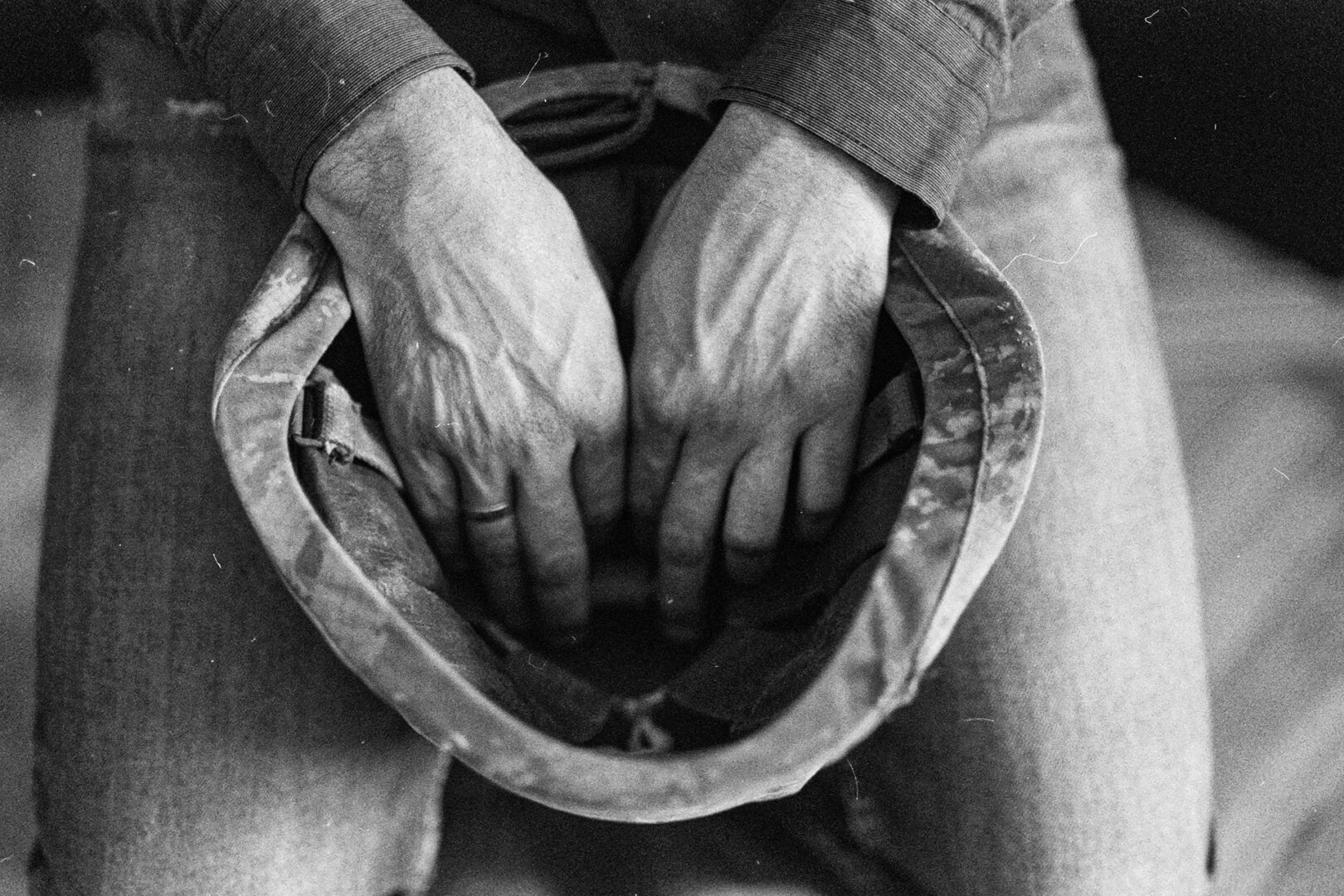
․․․ With either the camera or arms, I had to be there…
(That is how I set off taking my military ticket with me, so that if need be to take the arms, I would put documenting aside. I was thinking maybe it would take long, until spring, and I would take as many photos as I could, and I would fight once there was the need for it…)
Shooting was fighting in a way. I was fighting at least with the camera…It was like keeping a diary: I would wake up, decide to go this way or that way, and take photos on the spot…
Perhaps I am not ready yet, but I want to continue shooting what I was shooting during the war. I want to make a photo story from the hot days of the war in these more peaceful times…
I want to show a person who lost someone, lost his house, and a part of his body… Perhaps, after doing so, I would have clearer answers, as the war in progress puts you in a certain pace and rhythm and you just go… While what is left is the same war and its aftermath…


